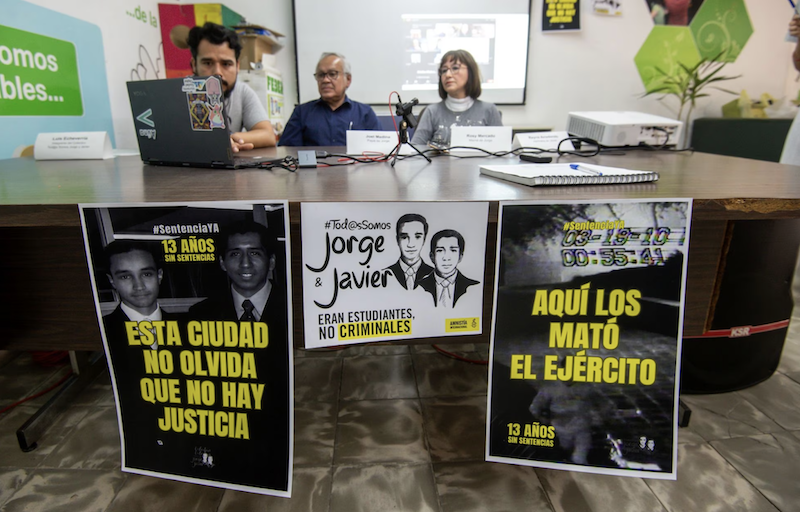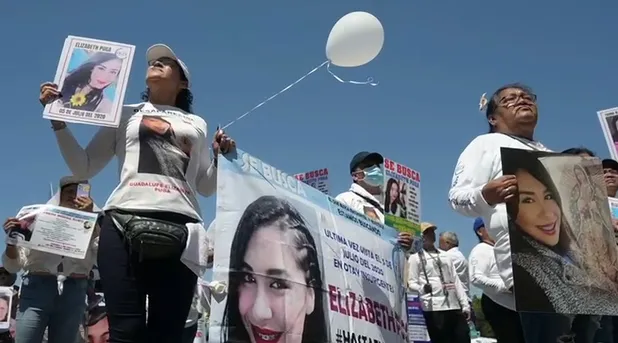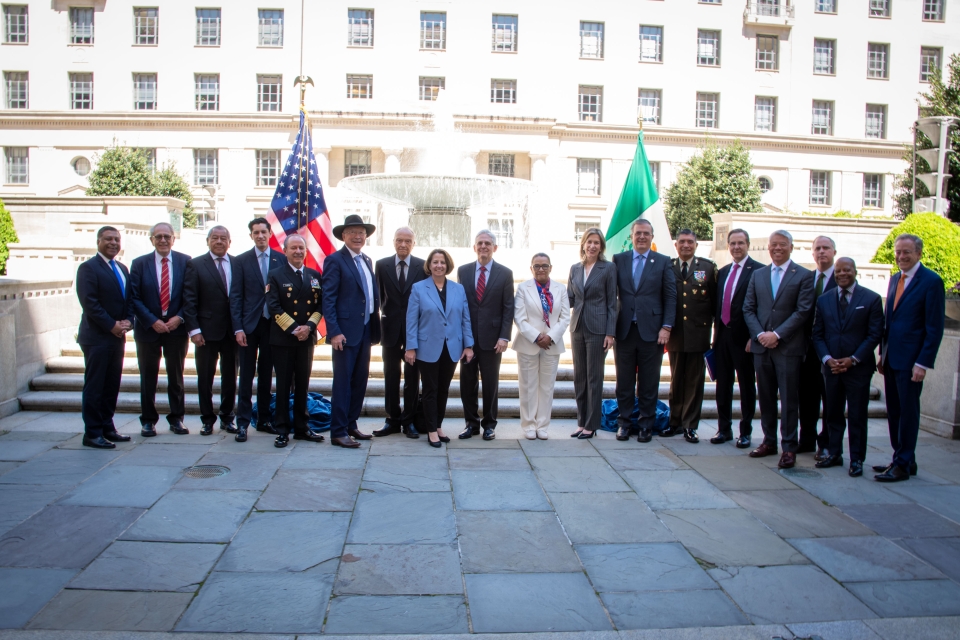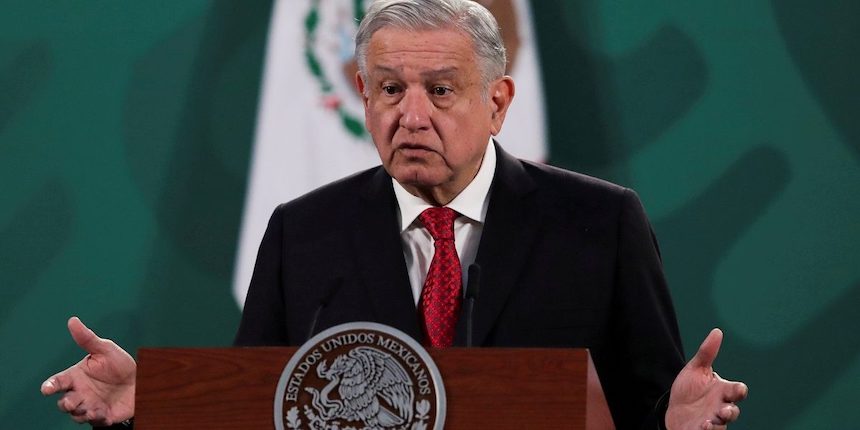Mexico Accused of Torture in Drug War
Army Using Brutality To Fight Trafficking, Rights Groups Say
By Steve Fainaru and William Booth
Washington Post Foreign Service
Thursday, July 9, 2009
PUERTO LAS OLLAS, Mexico — The Mexican army has carried out forced disappearances, acts of torture and illegal raids in pursuit of drug traffickers, according to documents and interviews with victims, their families, political leaders and human rights monitors.
From the violent border cities where drugs are brought into the United States to the remote highland regions where poppies and marijuana are harvested, residents and human rights groups describe an increasingly brutal war in which the government, led by the army, is using harsh measures to battle the cartels that continue to terrorize much of the country.
In Puerto Las Ollas, a mountain village of 50 people in the southern state of Guerrero, residents recounted how soldiers seeking information last month stuck needles under the fingernails of a disabled 37-year-old farmer, jabbed a knife into the back of his 13-year-old nephew, fired on a pastor, and stole food, milk, clothing and medication.
In Tijuana, across the border from San Diego, two dozen policemen who were arrested on drug charges in March alleged that, to extract confessions, soldiers beat them, held plastic bags over their heads until some lost consciousness, strapped their feet to a ceiling while dunking their heads in water and applied electric shocks, according to court documents, letters and interviews with their relatives and defense lawyers.
The officers were detained at a military base for more than a month.
Mexican officials acknowledged that abuses have occurred in the fight against traffickers but described the cases as isolated. In some instances, drug traffickers may be accusing the army of torture and other human rights violations as propaganda and to deflect attention from the government’s efforts to dismantle their operations, the officials said.
“I know that the armed forces are not acting inappropriately, although there have been some cases,” said Interior Minister Fernando Gómez Mont, who is responsible for coordinating security operations across Mexico. “The government honestly believes that. There is no incentive for abuse.”
Mexican security forces have long had a spotty human rights record, but the growing number of abuse allegations appears to be a direct response to the savagery unleashed by the cartels after President Felipe Calderón put the military in charge of the drug war in December 2006. Most of the violations have occurred in regions where the sight of dismembered bodies of soldiers and police is remarkably common. In the state of Michoacán, investigators with the government’s National Human Rights Commission concluded that the army committed abuses against 65 people over three days — including several cases of torture and the rape of two girls — after five soldiers were killed in an attack in May 2007.
The U.S. government has encouraged and, in part, funded, Calderón’s risky strategy of using the army to fight the cartels that handle 90 percent of all cocaine that enters the United States. U.S. officials said Calderón has initiated reforms that they think ultimately will increase respect for human rights among soldiers and police.
However, U.S. officials warned that the abuse allegations could lead Congress to withhold more than $100 million in anti-narcotics assistance.
The cases in Puerto Las Ollas and Tijuana are under investigation by the National Human Rights Commission, which has been overwhelmed with more than 2,000 complaints about the army — 140 a month this year. The commission has documented 26 cases of abuse, 17 of which involved torture, including asphyxiation and the application of electric shocks to the genitals of drug suspects.
“What happens is the army takes [suspects] back to their bases — and of course a military base is not a place to detain people suspected of a crime — and they begin to ask questions,” said Mauricio Ibarra, who oversees investigations for the commission. “And to help them remember or to get information, they use torture.”
Ibarra said army doctors covered up some torture cases by omitting physical evidence from medical reports before suspects were handed over to civilian authorities.
In an interview, Gómez Mont said the military is investigating 15 cases of alleged abuse and, in one, returned indictments against an officer and four soldiers. He said he did not have information to identify those cases. Gómez Mont said the military is looking into the events at Puerto Las Ollas but has found no evidence to corroborate the torture allegations made by the police officers and their families in Tijuana.
The Mexican Defense Ministry did not respond to several requests for an interview on allegations of human rights violations by the army.
Funding the Fight
Under the Mérida Initiative, a $1.4 billion counter-narcotics package that President George W. Bush requested in June 2007, 15 percent of the money cannot be released until the secretary of state reports that Mexico has made progress on human rights. The requirements include the prosecution of suspected human rights offenders, the prohibition of testimony obtained through torture and regular consultations with independent human rights groups.
The State Department’s Mérida human rights report will be delivered to Congress within weeks, according to a U.S. official involved in the process. The official described Mexico’s human rights record as “a mixed bag” and said it remains unclear whether the report will be enough to satisfy the conditions to release the money.
“This is the hardest part” of Mérida, the official said.
At least $90.7 million allocated to Mexico to fight drugs cannot be released unless Congress accepts the State Department’s findings. An additional $24 million is also subject to Mérida’s human rights conditions in the supplemental budget package that President Obama signed on June 24. Part of the Mérida funding is for inspection equipment, police training and support for the Mexican military.
With the Mexican government and governors from U.S. border states clamoring for more assistance — drug violence killed 769 Mexicans in June, one of the worst months since Calderón took office, in December 2006 — the State Department is hoping that Congress will release the money despite human rights concerns, according to the U.S. official, who expressed frustration that the Mexican government has not provided more information about the army’s progress, including the number of human rights cases that have been prosecuted.
“The military justice system in Mexico is very opaque; it is very hard to get a handle on how many cases have been brought and what has been their disposition,” said the official, who spoke on the condition of anonymity because of the sensitivity of the issue.
The Mexican government has long opposed the human rights conditions included in the Mérida agreement, and U.S. officials expect a backlash if Congress refuses to release the money. Many Mexican human rights activists do not support the conditions, noting that they were imposed by a U.S government widely accused of torturing prisoners in Iraq, Afghanistan and at Guantanamo Bay, Cuba.
“It really takes a lot of cynicism, a lot of hypocrisy, for the United States to say, ‘We will give you money to fight drug trafficking as long as you respect human rights,’ ” said José Raymundo Díaz Taboada, director of the Acapulco office of the Collective Against Torture and Impunity, which documents abuses in Guerrero.
At the same time, human rights groups have lobbied the U.S. government to send a blunt message by withholding the money. A letter that a consortium of U.S. and Mexican organizations sent to the State Department in January concluded: “Mexican authorities have in no way adequately met the human rights requirements established in the Mérida Initiative.”
“You can’t just write a blank check,” said Abel Barrera, director of Tlachinollan, one of the most prominent human rights groups in Mexico. “It’s the citizens who end up suffering. These kinds of programs just encourage impunity.”
Suspected Trafficking Ties
With nearly 45,000 troops deployed in parts of Mexico and along the border, the military has been drawn into a low-intensity conflict in which drug cartels have committed increasingly horrific acts of brutality. Of the 12,050 people killed in drug violence from the beginning of Calderón’s term through June, 973 were police officers and 72 were soldiers, according to Milenio, a Mexican media network that keeps a running total of casualties.
In many of the country’s most conflicted regions, the army has responded by raiding private homes without search warrants, detaining people it considers suspects and holding them on military bases in violation of Mexican law, according to political leaders, residents and human rights monitors. In Ciudad Juárez, a hotbed of drug violence across the border from El Paso, the state human rights commission received about 100 complaints of torture from January 2008 through February 2009, according to a seven-page report prepared by Gustavo de la Rosa, who directs the office.
Last March in Tijuana, the military, with the assistance of the local police chief — a retired army lieutenant colonel — arrested 25 police officers suspected of having ties to traffickers. Salvador Guerrero Flores, a customs agent, said in an interview that he received a call from a public defender telling him that he had seen his brother Manuel incarcerated at the base of the army’s 28th Military Battalion and that “he was really beaten up.”
Guerrero said it took four days for the army to admit that it was holding his brother. When he finally saw him, he said, his brother was covered in bruises. He later told Guerrero that soldiers had beaten him four times and asphyxiated him with a plastic bag until he passed out.
“He said he lost consciousness twice and they injected him with something to revive him,” Guerrero said. “He didn’t know with what.”
In a statement that Manuel Guerrero gave to authorities while held by the army, he was asked whether he had been tortured.
“Yes, but it’s not my wish to detail the actions that I have suffered on this base, because I’m still in their custody,” he responded, according to court documents.
His physical condition was then noted in his statement: “The subject Manuel Guerrero Flores shows multiple red contusions, parallel scratches extending from both armpits, massive swelling in both ankles and both wrists, swelling in his left ring finger, swelling in his right index finger, a needle mark or impression that appears to be blood on his upper right buttock.”
Storming the Village
In Guerrero state, the army began a crackdown in December after traffickers kidnapped nine soldiers and left their severed heads in the parking lot of a Sam’s Club in Chilpancingo, the state capital.
On June 9, on the other side of the state, soldiers stormed into the village of Puerto Las Ollas, situated on a mountain in the middle of one of the state’s most fertile poppy and marijuana-growing regions. The area is also home to the Revolutionary Army of Insurgent People, a guerrilla organization that the government has linked to drug traffickers. The group denies any connection.
The village is made up of 10 wooden shacks with packed-dirt floors and metal corrugated roofs. Turkeys, chickens, dogs and children fill up the muddy footpaths that connect the modest dwellings. Residents say they have no links to the traffickers or guerrillas.
The soldiers arrived in three Humvees in the mid-morning, according to residents. Wielding G-3 assault rifles, they began to fire on the town, said residents, who later collected dozens of shell casings from 7.62mm ammunition they said was used in the attack. Most of the men of Puerto Las Ollas literally ran for the hills, escaping into the dense forest.
Gómez Mont said one soldier was wounded as troops advanced. Residents said no shots were fired from the village.
As the soldiers arrived, they encountered Jaime César Acosta, a 37-year-old corn farmer who said he is unable to run because of the lingering effects of a childhood illness. After he dismounted his mule, Acosta said, soldiers seized him, stood him up near one of the trucks, placed a rifle to his head and a long knife to his chin, and threatened to rape and kill him if he did not provide useful information.
Acosta said that when he told the soldiers he did not know anything, they beat him with their fists. One grabbed his arm and began to pull the hair out, he said. Another took what appeared to be a sewing needle and stuck it repeatedly under his fingernails as he screamed.
“One of them asked me if I was afraid to die,” Acosta said. “I told him, ‘No, if God is ready for me, then it’s His will.’ ”
He said the soldier then picked up a suitcase and bashed him over the head with it.
Acosta’s 13-year-old nephew, Omar García, was nearby when the soldiers arrived. He said they forced him to remove his black boots, which they said were military-style and therefore illegal. The boy said he put on sandals. “Then they started punching me, and they started stomping on my toes with their boots,” he said.
One soldier took a long knife, he said, and repeatedly jabbed the tip into his lower back, threatening to kill him unless he provided information about the men who had fled into the mountains and other “armed men” in the area.
The soldiers freed Acosta and his nephew after four or five hours, they said. But the army, assisted by reinforcements, continued to occupy Puerto Las Ollas and Las Palancas, a town composed of just two houses about half a mile down the road.
The Rev. Lino Rauda, 53, the Las Palancas pastor, said he initially was not concerned about the soldiers who gathered in an open field about 100 yards from his house. A few hours after they arrived, he said, he was walking when one of them called out to him: “Hey, boy, come over here.”
Rauda said he turned to see two soldiers pointing their rifles at him. “I immediately thought, ‘They’re going to shoot me,’ ” he said. He said he dropped to the ground as six shots whistled over his head. Rauda said he then fled into the mountains with the soldiers in pursuit, shooting at him.
Two weeks later, as a Washington Post reporter conducted interviews in Puerto Las Ollas, the whine of a car engine came from down the road. Upon hearing it, a woman yelled out:
“Men, listen! A car! A car!”
Half a dozen men suddenly ran in all directions, disappearing into the trees.
Finally the vehicle appeared, a yellow pickup truck, and two men got out. They were investigators from the National Human Rights Commission.
Staff researcher Julie Tate in Washington contributed to this report.




